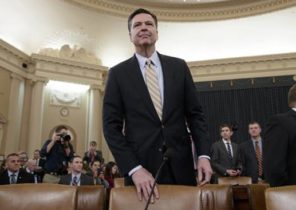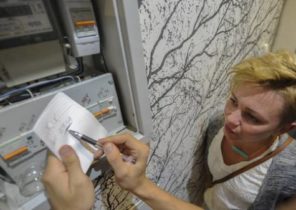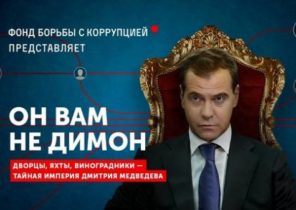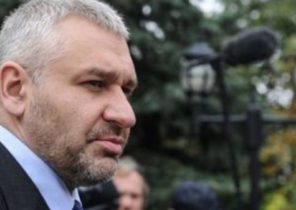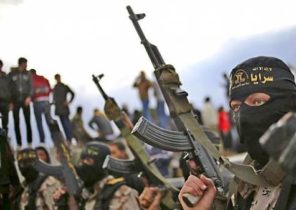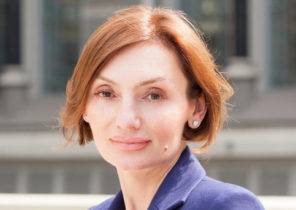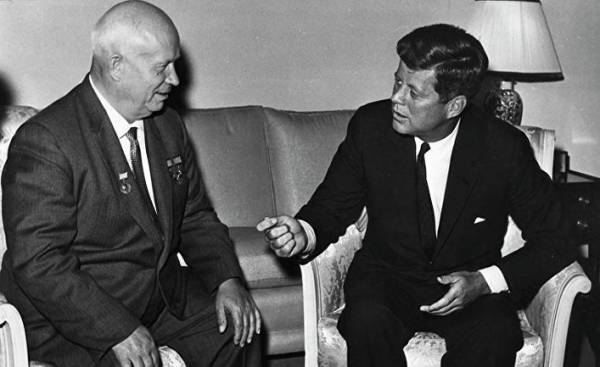
Jared Kushner was not the first member of the presidential family who attempted to establish a secret channel of communication with the Kremlin. John’s brother Robert Kennedy many times secretly met with a Soviet intelligence agent Georgi Bolshakov during the reign of the Kennedy administration. Their relationship demonstrated the shortcomings and danger of informal diplomacy at a high level, but it also became an illustration of additional opportunities for a positive breakthrough in the crisis period.
The Kennedy brothers were in many ways the same self-willed, as members of the human family trump. President Kennedy appointed brother as attorney General (at the insistence of their father, Joseph Kennedy). Among the personal scandals that Bobby had to hush up, can be called the illegitimate President’s relationship with Judith Exner (Judith Exner), the mistress of the head of the Chicago mafia Giancana Momo (Momo Giancana), and Ellen Rometch (Ellen Rometsch), which the FBI suspected of espionage in favor of East Germany. (In his biography of Robert Kennedy, I wrote that Rematch denied having sexual relations with the President and in espionage activities, but Kennedy still had her deported.) More importantly, John F. Kennedy used Robert for covert operations directed against Cuba, including assassination attempts on Fidel Castro.
It is not surprising that at the end of April 1961, the first year of the Kennedy administration when Soviet agent Bolshakov — using an American journalist as a mediator — for the first time invited to meet secretly with attorney General Kennedy, Bobby without hesitation agreed. Bolshakov was posing as the editor of the English-language publication dedicated to life in the Soviet Union. In fact, he was a Colonel in Soviet military intelligence who worked under cover. What’s more, his boss in Moscow was Alexei adzhubei, son-in-law of Soviet leader Nikita Khrushchev.
Day may 9, US attorney General and a top Soviet spy sat on a bench on Constitution Avenue, near the building of the Ministry of justice. “Look, George, I know a lot about your situation and about the relations with the environment of Khrushchev, said Robert Kennedy, according to the memories of them, contained in the biography of President Kennedy, written by Richard Reeves (Richard Reeves). — I don’t suppose they would object to having to obtain from you accurate information first hand, and I assume that they will find a way to pass it on to Khrushchev”.
Over the next 18 months, the President’s brother and a short, heavyset Soviet spy managed to meet a few dozen times. The father of the Kennedy brothers — who felt that professional diplomats have ruined his reputation during his tenure of the US Ambassador in Britain at the beginning of the Second world war — told them that you should not rely on the bureaucrats of the state Department. John Kennedy believed the state Department-track and superficial. “They are not useless, but they are somewhat similar to Edla” he said, referring to US Ambassador to the UN Adlai Stevenson (Our Stevenson).
Bobby is not always expressed your thoughts quite clearly, and the Russians sometimes did not understand him. In addition, the President’s brother was extremely intemperate and careless person. He informed the agent of Soviet intelligence, the joint chiefs of staff, “presented to the President a report stating that currently the U.S. ahead of the Soviet Union in military power and that in a pinch you can experience the forces of the army of the Soviet Union”. The word “experience”, pronounced Kennedy of negligence, caused severe anxiety in the Kremlin. Does he mean that the Pentagon is considering the possibility of a preemptive strike?
For their part, the Americans have been fooled before Robert Kennedy. 5 October 1962 the intelligence agent had assured Kennedy that Khrushchev promised to deploy in Cuba only defensive weapons. Two weeks later, American spy planes U-2 flying over Cuba and photographed nuclear missiles that were capable of reaching Washington. That moment was the beginning of the most dangerous crisis of the cold war.
However, it was a secret channel of communication with Bolshakov allowed eventually to find a way out of the situation. October 23 the next morning after the President announced the blockade of Cuba and the millions of Americans faced with the real prospect of nuclear war, Robert Kennedy delivered a message Bolshakova. In 1993, historians Timothy Naftali (Timothy Naftali) and Aleksandr Fursenko found a telegram Bolshakova among the documents of the Soviet foreign Ministry in Moscow: “Robert Kennedy and his friends think it is possible to discuss the next deal was a compromise: the US eliminate its missile bases in Turkey and Italy, and the Soviet Union — Cuba”.
It is an agreement concluded Robert Kennedy met secretly with Soviet Ambassador Anatoly Dobrynin on the evening of 27 October. In those four days that have passed between these two events in the Saga of the Cuban missile crisis was full of twists and turns, and indeed the parties were on the verge of war. But the desire of the Kennedy brothers to conduct negotiations through secret channels in the end has brought many benefits — it is possible, without it the situation would have developed in a completely different scenario.
Covert communication channels can cause harm. They can wreak havoc, breaking normal diplomatic processes, and potentially provoke a catastrophe, contributing to the realization of desires wilful leaders. But these channels can also contribute to peace. The beginning of normalization of relations with China in the era of President Richard Nixon became possible only due to the hidden channels of communication, and established his adviser for national security Affairs Henry Kissinger (Henry Kissinger) who also found a hidden channel of communication with the Kremlin. It would be very interesting to know the extent to which Kissinger could affect Kouchner.
